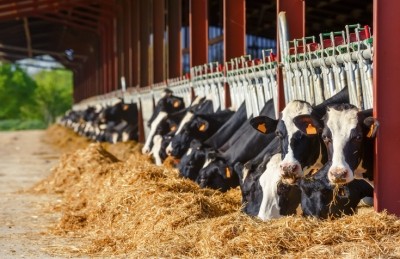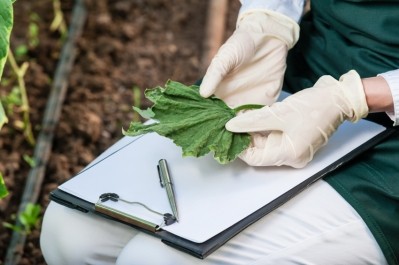USDA effort to maintain integrity of organic imports questioned

The US Department of Agriculture (USDA) released a set of interim instructions and best practices regarding ways to maintain the integrity of organic imports on Wednesday.
Anne Ross, farm policy analyst with the Cornucopia Institute, was less than impressed: “While we are pleased the NOP [National Organic Program] is providing certifiers guidance in this area, the instruction is an ineffective substitute for meaningful regulatory reform,” she added.
“Unscrupulous actors will continue to find ways to import organic grains into the US, unless and until, federal agencies implement coordinated, systematic and strategic testing of imports at US borders,” she told FeedNavigator.
The USDA said the instructions highlight best practice and offer examples to aid certifiers in complying with current regulation. They are open to comment until December 26.
“International supply chains for organic products can be complex, often involving multiple businesses (certified and uncertified) working across international borders,” said the USDA. “With this growth and complexity have come questions about certifiers’ responsibilities under the regulations for oversight and verification of organic products imported into the United States.”
Fraud
Earlier this year it was found that several large feed grain shipments imported in the US were fraudulently labeled as organic grains. Additionally, a recent assessment from the Office of Inspector General suggested areas where improvements could be made.
The responsibility of enforcing US organic import regulations should not be placed only on certifiers, said Ross. Nor should major elements be left to individual’s discretion.
“The USDA has to do its part through regulatory reform and unwavering enforcement,” she said. The most recent instruction does not provide that, she added.
“The instruction, which consists largely of check-the-box procedures, simply cannot accomplish what tougher regulatory standards and exacting penalties will do in deterring bad actors from importing fake organics,” she said. “The instruction does not address a major loophole in the regulatory framework that leaves some importers, distributors, and brokers exempt from certification.”
Additionally, a complete audit trail that can trace organic imports – preferably with an electronic tracking mechanism – back to the originating farm overseas is needed, she said. And the ability to levy harsher penalties also is essential, said Ross.
Responsibilities and best practices
Certifiers have the ability to certify organic handlers and producers in regards to the USDA organic regulations, the USDA said. They can be either foreign or domestic entities and public or private groups that meet the established requirements.
There also are equivalency arrangements that have been set with other countries to allow for organic trade, said the department. Recognition agreements have been established to allow other governments to accredit certifiers to USDA standards – but their role still is to certify that operations or products meet USDA organic requirements.
Although there are groups that are exempt from certification requirements, certifiers have a series of responsibilities in working with import and export operations; organic farms, ranches and businesses; grains and products; record keeping; audit trail examinations; site inspections and reviewing organic systems plans, the USDA said. Certifiers also need to be aware of handling and the treatment of imported grain.
There also may be times when previous experience has found that obtaining an organic certificate for the last certified operation is not sufficient proof, or even when an organic certificate is not enough documentation to establish a product’s organic integrity, said the USDA.
In such cases, best practices would suggest that a certifier should track back the audit train to establish documents like the organic certificate for a previously involved certified organic operation, phytosanitary certificates or previous invoices to establish compliance.












